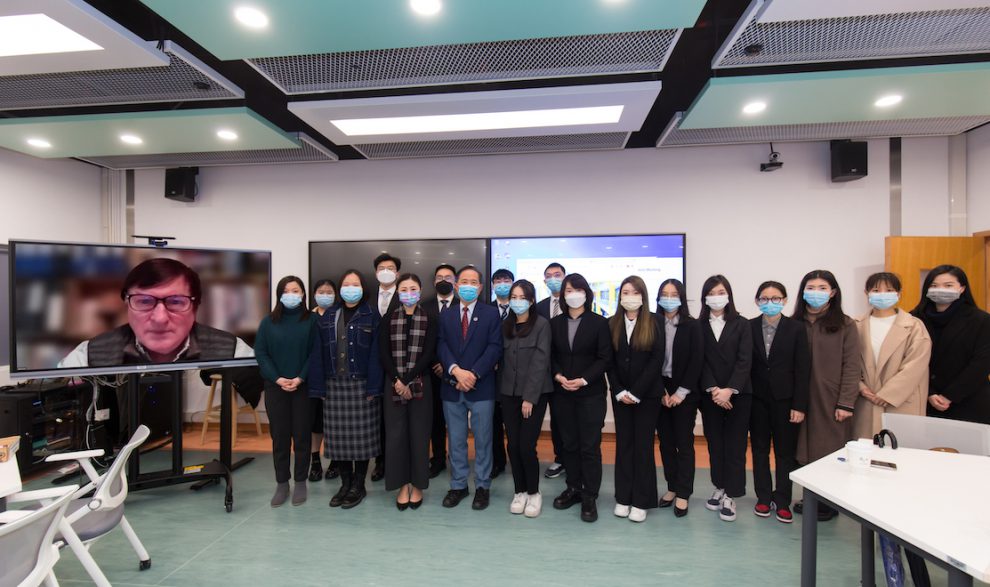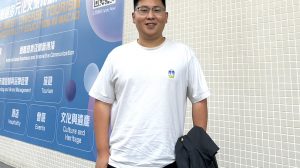IFTM is again collaborating with the UNWTO Academy – the educational arm of the World Tourism Organization (UNWTO) – to offer a series of postgraduate courses in Macao. It is the second consecutive year of such partnership, and the latest collaboration has been receiving positive reviews from those taking the courses.
Ms. Pauline Chau Pui Ieng, a student on IFTM’s Hospitality and Tourism Management Master’s Degree Programme, was on the first of this year’s UNWTO Academy-IFTM postgraduate courses, “Destination and Attractions Management”, which ran between February and late March.
Such kind of collaboration between two high-profile bodies such as IFTM and the UNWTO Academy “is not easily available,” Ms Chau says. She adds that she learnt from the course the value of attention to detail when managing tourism and hospitality attractions.
The course included a two-day staycation at integrated resort Galaxy Macau. The activity provided participants with an opportunity to gain in-depth insights on the operation of the property, thanks to the tours and special lectures delivered by resort executives.
“We had the chance to visit different types of hotel room at Galaxy Macau,” says Ms. Chau. “There was a back-of-house tour, led by staff from the hotel, and we really learnt a lot from their presentations.”
Also in the UNWTO Academy-IFTM course was fellow master’s degree student Ms. Kelly Chio Hoi Ian. She too praises the staycation experience, saying it has made her more aware of important aspects regarding property management, including how good satisfaction levels among staff can have a positive impact on the quality of the customer experience.
“I work in front-line operations,” says Ms. Chio “I learnt from the course how important it is for us to ensure quality service.”
The UNWTO Academy-IFTM courses are available to postgraduate students from the Institute enrolled in selected programmes, as well as members of the public that have already attained at least a bachelor’s degree from any appropriate institution.
Among the external participants was Mr. Orson Wong Chi Wai. He is an alumnus from the Institute and also a part-time lecturer at IFTM.
“I plan to further my studies, and this was a good chance for me to get back into ‘student life’,” Mr. Wong says. “Secondly, since I teach at IFTM, I would like to see how top scholars teach, how they plan the course structure, and how they motivate students.”
Mr. Wong says the experience of being on the course really helped him. “The course went very deep into the topics. I believe the most precious part was the professors sharing their practical experience, which is something not available in textbooks.”
Unique approach
This year’s collaboration between IFTM and the UNWTO Academy involves three courses. UNWTO is the United Nations agency responsible for the promotion of responsible, sustainable and universally-accessible tourism.
This year’s second UNWTO Academy-IFTM course, “Trends and Issues in Tourism and Leisure”, started on 22 March and runs until 27 April. The third and final course, “Sustainable Tourism Planning and Development”, takes place from 28 June to 2 August.
The courses are co-taught by IFTM faculty members and UNWTO experts. The first course, “Destination and Attractions Management”, was delivered by IFTM’s Prof. John Ap in partnership with Prof. Alastair M. Morrison, Research Professor at the Greenwich Business School, University of Greenwich, in the United Kingdom, who took part via video-conference. He praises the students’ performance.
“Overlapping the concepts of destination management and attractions management is a unique idea,” Prof. Morrison says. “I hope to see more and more universities implement courses like this.”
The course’s curriculum sought to address a number of things. They included guiding students to analyse, offer a critique on, and generally evaluate a destination or attraction, and so be able to suggest solutions to any problems and issues found. The course also aimed to present participants with knowledge about trends and contemporary issues linked to management of destinations and attractions.
Prof. Morrison says the objectives were “absolutely and definitely achieved”. He points to the diversity of teaching tools used, ranging from traditional lectures to a site visit to Taipa Village, as well as the Galaxy Macau staycation.
There were also guest speakers invited to share their insights with the students. All those things “really gave students different ways” to achieve the hoped-for learning outcomes, Prof. Morrison says.









